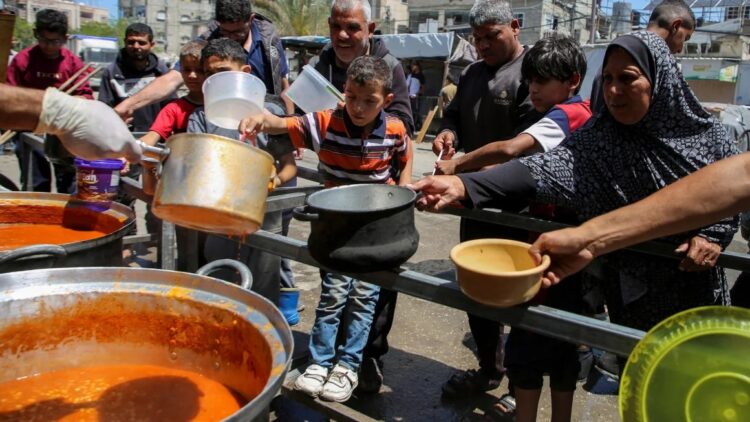The Israeli military has announced a daily “tactical pause” in military operations along a critical route in southern Gaza to facilitate the distribution of humanitarian aid. This pause, effective from Saturday, will occur every day from 8 a.m. to 7 p.m. local time until further notice, allowing aid trucks to travel from the Kerem Shalom Crossing to northern areas along the Salah al-Din Road, according to the Israel Defense Forces (IDF).
The decision comes amid intense fighting in and around Rafah, southern Gaza. Despite the pause, the IDF emphasized that there would be no cessation of military activities in Rafah, highlighting the ongoing effort to combat Hamas forces in the region.
Israel’s ongoing campaign in Gaza has precipitated a severe humanitarian crisis, with aid bottlenecks forming at Kerem Shalom due to continuous airstrikes and ground fighting. The IDF has designated a specific route from Kerem Shalom to Al Bayuk, extending to the European Hospital in Khan Younis, exclusively for humanitarian aid transport. This operation is being coordinated with international organizations to boost the volume of aid reaching the besieged enclave.
Shortly after the announcement, the IDF confirmed that heavy fighting persisted in Rafah. A civil defense official in Gaza reported to CNN that intense clashes continued in the western neighborhoods of the city.
The violence claimed the lives of eight IDF soldiers near Rafah on Saturday, marking one of the conflict’s deadliest incidents for Israeli forces.
Scott Anderson, the director of UNRWA affairs in Gaza, welcomed the pause, stating to CNN, “We very much hope that this long pause every day will allow us to move freely back and forth.”
However, the tactical pause faced criticism from within the Israeli government. Security Minister Ben Gvir, a cabinet member, denounced the decision, arguing that it undermines military efforts. “Whoever decided on a ‘tactical pause’ for the purpose of a humanitarian transition, especially at a time when the best of our soldiers are falling in battle, is an evil and a fool who should not continue to be in his position,” he asserted.
Human rights organizations have described the living conditions in Gaza as “unspeakable” following eight months of intense bombardment. According to the UNRWA, over 75% of the Gaza population has been displaced, with neighborhoods destroyed and critical health infrastructure severely damaged. Essential supplies, including food, water, and fuel, are in dire shortage.
The Ministry of Health in Gaza reports that more than 37,000 people have been killed in Israel’s offensive, which began after the October 7 attacks by Hamas that resulted in the deaths of approximately 1,200 Israelis and the capture of 250 hostages.
The situation in Gaza remains critical as both military operations and humanitarian efforts continue to unfold.

















Comments